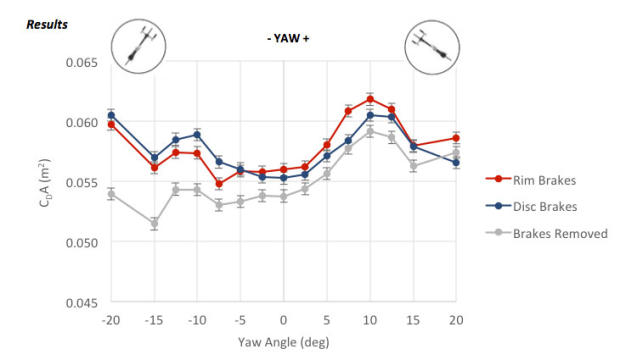Scant Evidence Disc Rotors Injure Pros
In a statement released on Friday, the World Federation of the Sporting Good Industry (WFSGI) pushed back on accusations that disc brakes were responsible for injuries in pro road cycling.
While stopping short of stating that disc rotors were not the cause of either the “Ventoso accident” at the 2016 edition of the Paris-Roubaix race, or the “Doull accident” at the Abu Dhabi race just held, the WFSGI did release forensic analyses it commissioned on these accidents.
"The WFSGI asked forensic doctor Ulrich Zollinger based in Bern, Switzerland to analyze the wound of Francisco Ventoso as well as the entire course of his accident,” the statement said, and then pointed to the report, available on the WFSGI website.
"The WFSGI also commissioned the German bicycle accident investigator Dirk Zedler to make an independent investigation & risk assessment of the Doull accident.”

The WFSGI draws no conclusions, and lets the reports speak for themselves.
Dr. Zollinger’s report concludes that Mr. Ventoso’s accident, for it to be caused by a disc brake rotor, "couldn’t be reasonably explained,” while noting that Mr. Ventoso’s accident was, "well explainable by the impact of the chainless front gear,” i.e, the doctor suspects the chain ring, with the chain derailed, was most likely the cause of Mr. Ventoso’s injury.
Mr. Zedler’s report presents various scenarios whereby the Doull accident could have conceivably caused the injury to Mr. Doull’s leg, and concludes that, "a contact between the left lower leg and the brake disc will be impossible,” or would "nearly imperatively result in a fall of the colliding cyclist.”
The WFSGI is an advocacy organization representing bicycle manufacturers (as well as companies making products for other sports) . The organization has advocated in favor of the legality of disc brakes in pro cycling and in triathlon, though its member manufacturers are split in the use of disc brakes in mass start road bicycle racing.
While the studies above, and other analyses to which WFSGI points suggest that the use of disc brakes has not been found to be a significant cause of injuries in cycling, it still supports, "rounded disc brake rotors in order to react on the perceived risk by riders, as well as to support a faster exchange of the wheels from neutral support and team’s service."




